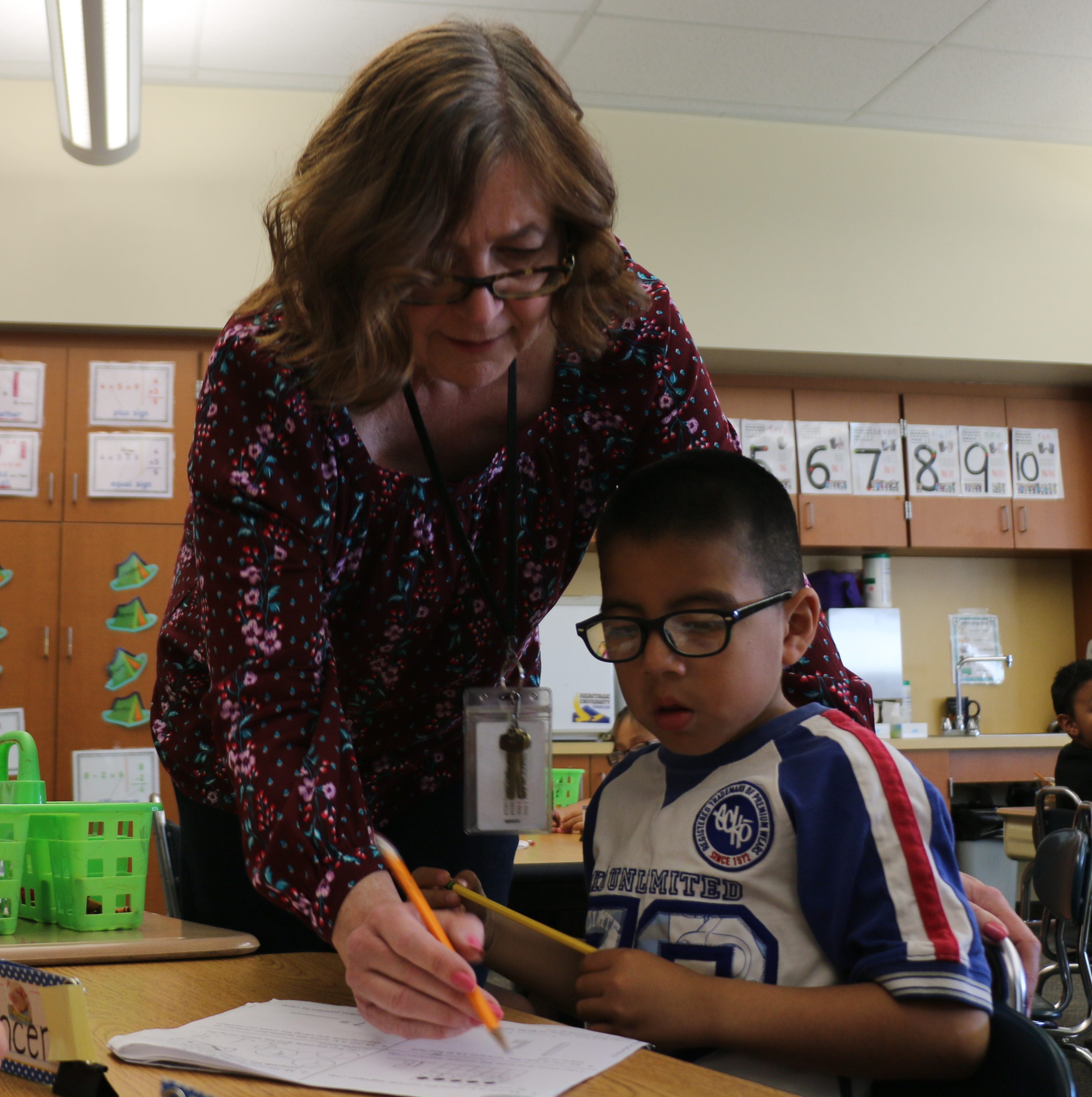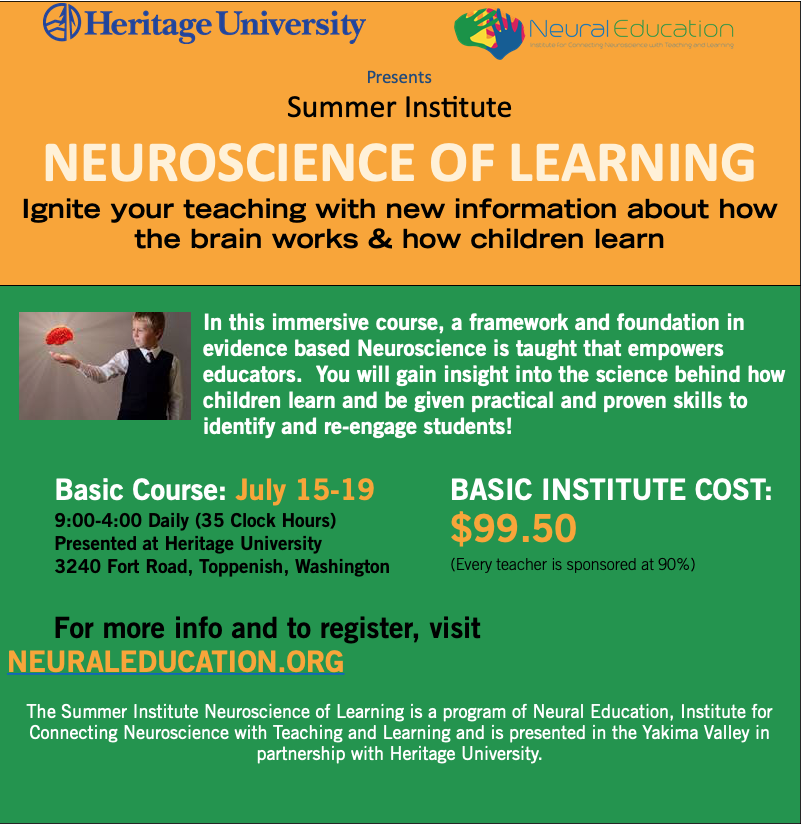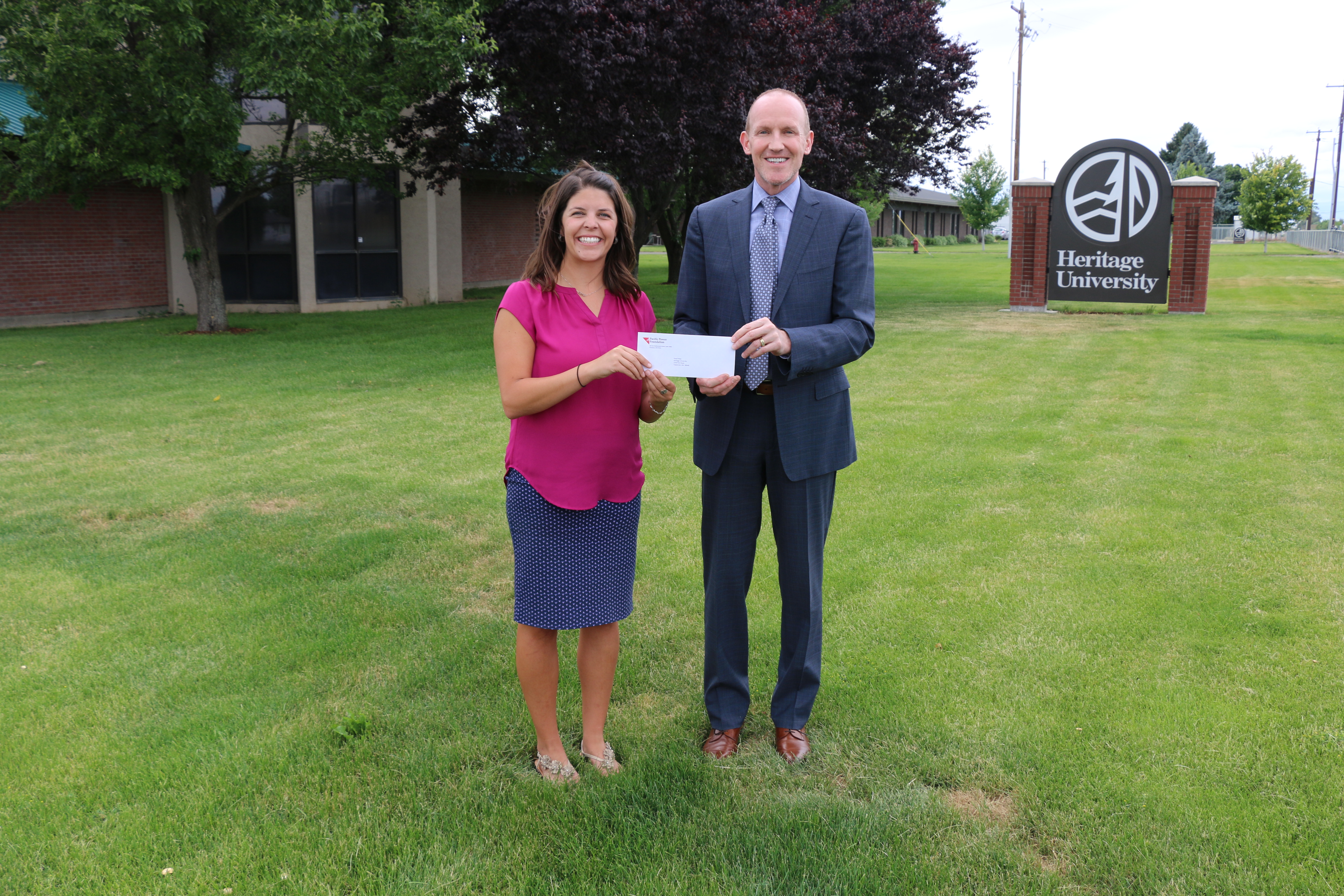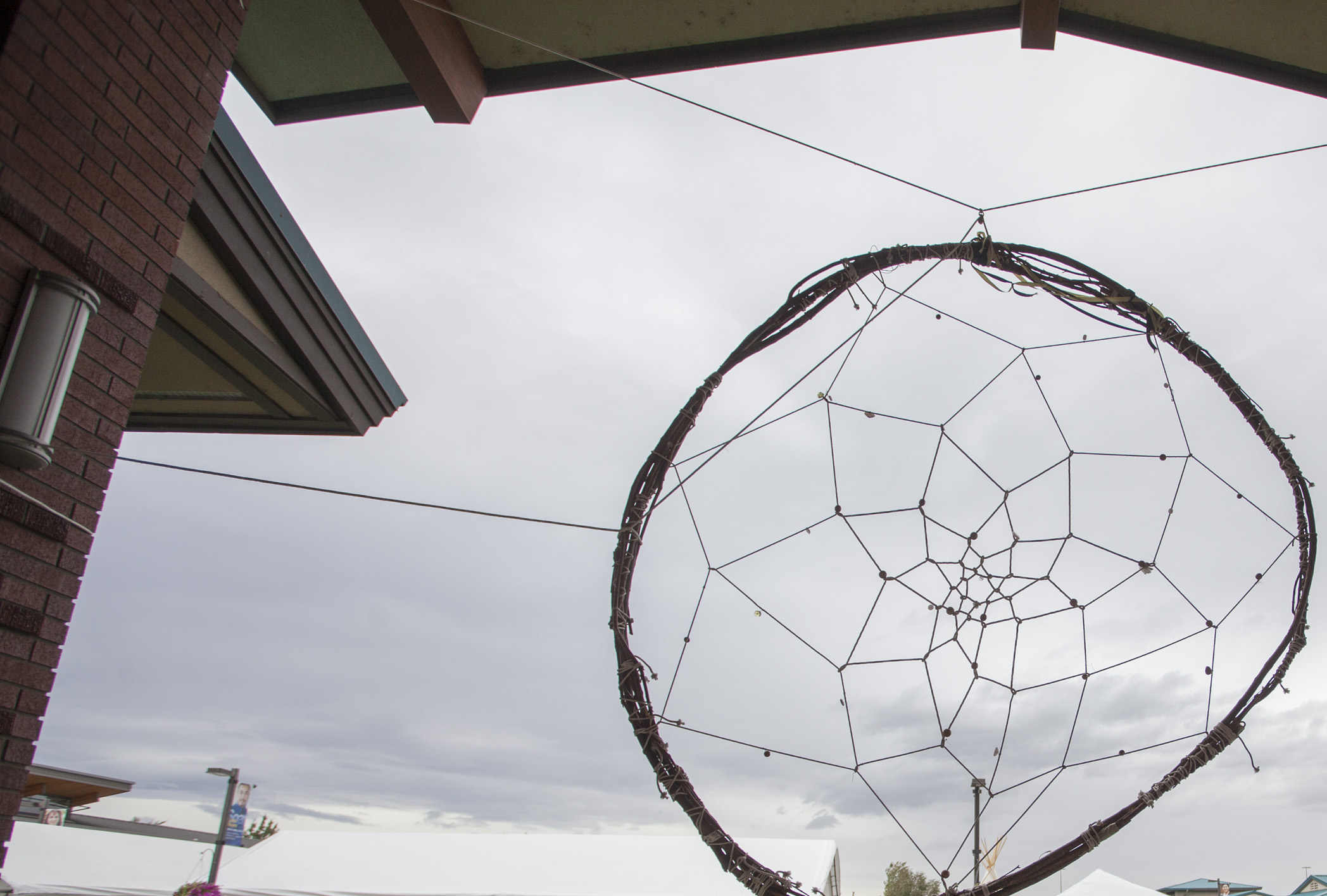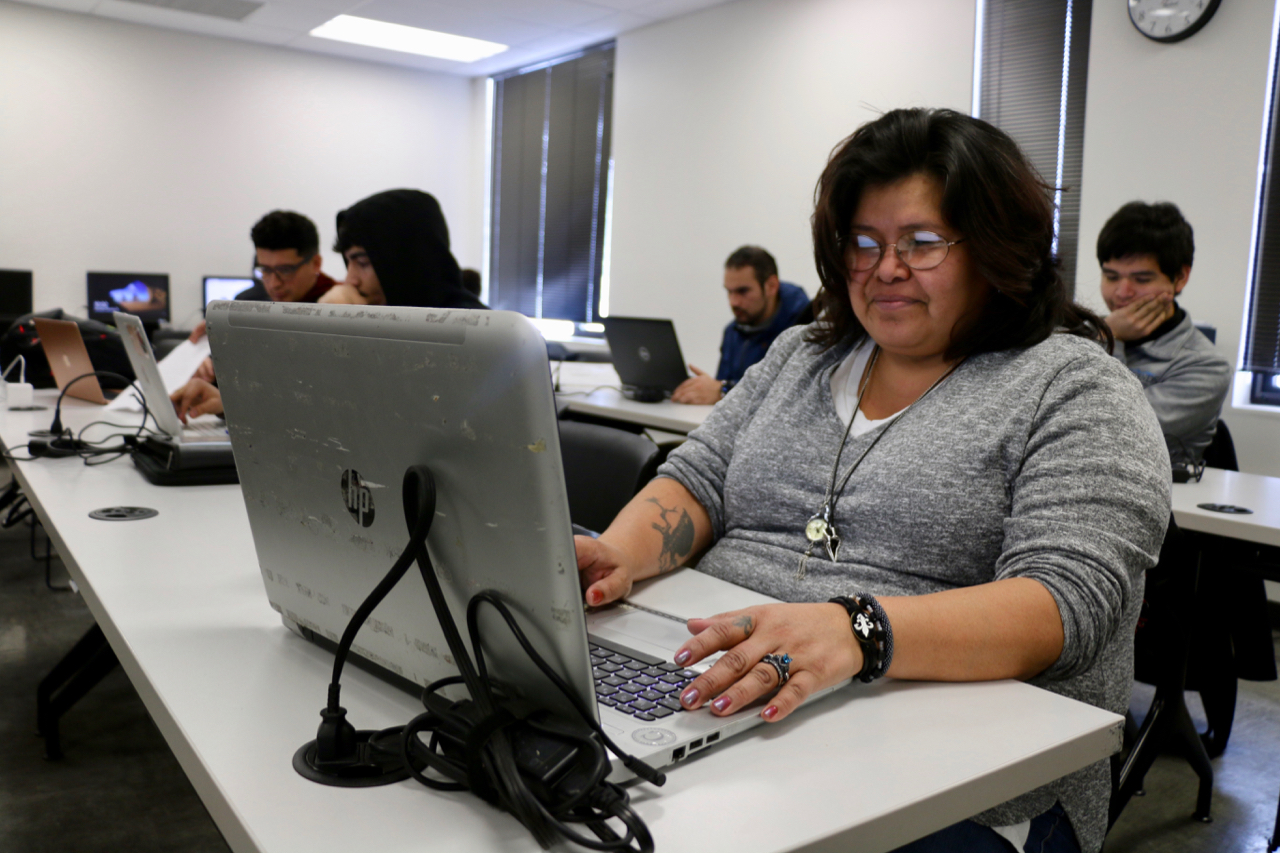A Heritage of Teaching
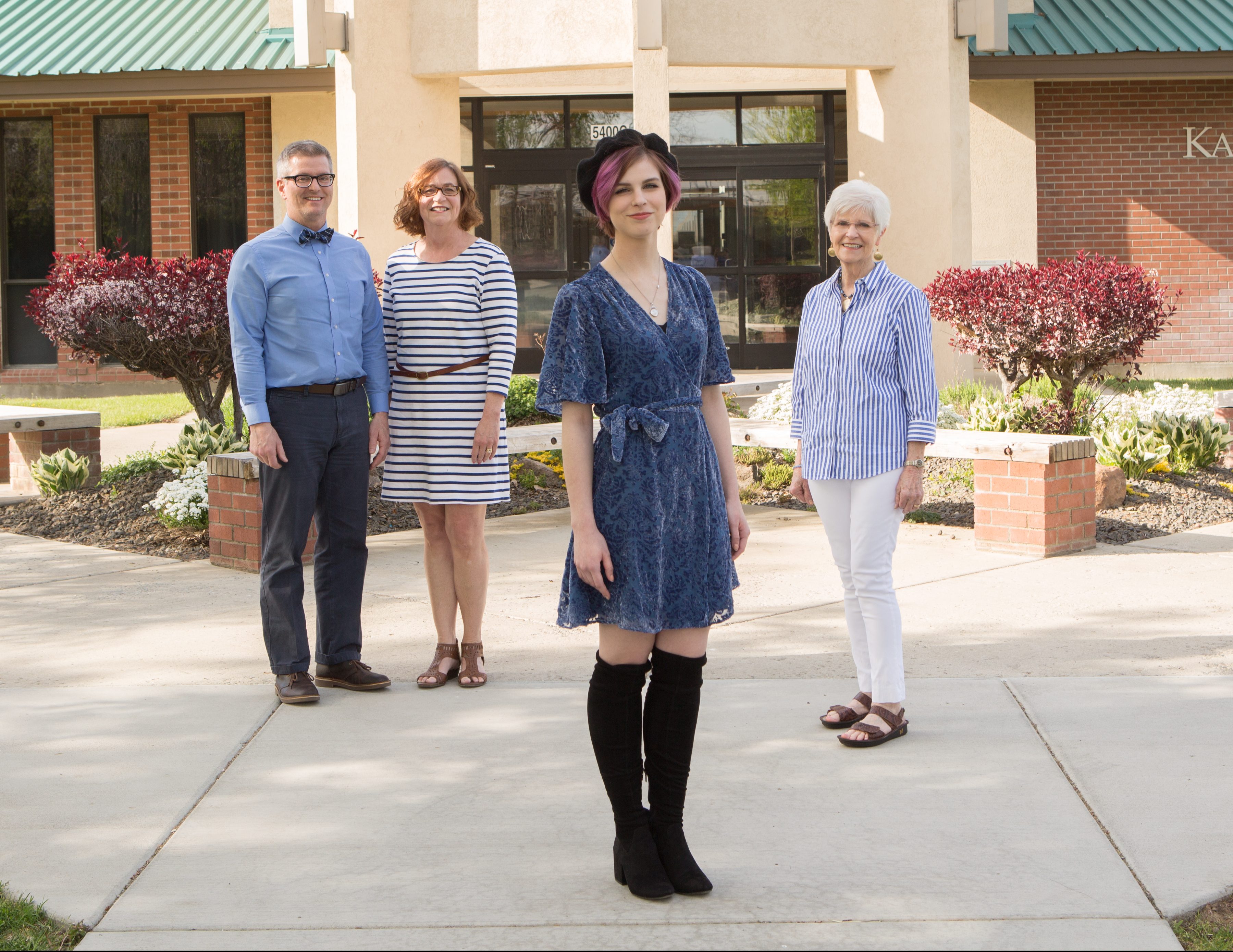
From left to right: Tim Platsman (Initial Residency Teacher Certificate, 2003), Kristina Platsman (Initial Residency Teacher Certificate, 2001), Allison Platsman (Freshman, Education major) and Carol Platsman (B.A. Ed., Elementary Education, 1990 and M.A. Ed., Professional Development, 1993).
Three generations of one family, all with a Heritage education, find lasting connection in the classroom.
Five years ago, Heritage freshman Allison Platsman would have said teaching was what her parents did, not her. But a lot can change between age 15 and age 20. When teaching hangs on several branches of your family tree, it just might be in your DNA.
Tally the years on all those branches, and between Allison’s grandmother, her dad, mom, two aunts, her sister, a cousin and her great-grandmother on her mom’s side, there are more than 100 years of teaching in the family.
The Platsman teaching heritage isn’t the only “heritage” that’s part of the family’s story. Allison is the fourth Platsman in just three generations to pursue her teaching degree at Heritage. What her parents and grandmother found there, Allison seeks as well: Connection and the ability to make a difference in the lives of young people.
BEING THEMSELVES
The Platsman teaching legacy in the Yakima Valley starts with Allison’s grandmother Carol – her dad’s mother. It was the mid-1980s, and with her two boys off to college, stay-at- home mom Carol Platsman had to decide what to do with the rest of her life.
“I loved being home with my boys. I also had always loved school, so I decided I’d go back.”
Carol chose to study at Heritage to be closer to her aging mother who lived nearby. A decision made largely because of family needs turned out to be one that would positively impact not only the rest of her life but hundreds of others.
“Heritage was such a positive environment, and there were such outstanding education instructors. I learned so much from their teaching styles.”
A few years later, with two Heritage University degrees under her belt, Carol Platsman was hired by the Sunnyside School District and taught third grade at three different schools over the years.
Carol said she was a “grandmotherly” teacher who utilized both her Heritage education and the nurturing approach that had come so naturally to her as a mom.
Carol retired at 63 in 2004. Looking back, what she recalls most fondly are her relationships with her young students. “I tried to make my room a safe place for kids to express themselves and to be themselves. I was happy when I knew the kids felt they could trust me.”
TAPPING THE ENTHUSIASM
Early in her teaching career, Carol saw the difference positive teacher-student relationships made in kids’ lives. She also noticed how enthusiastically grade school students responded to the rare male teacher in their midst.
Eventually, her son Tim would become one of those teachers. Off to Eastern Washington University in 1982, Tim Platsman had majored in business, graduated, and built a career working in Seattle. Despite his success, something was missing.
“I was helping businesses make money. I wasn’t making a difference in the world,” he said.
His mother, who was still teaching at the time, suggested he consider a change in his profession.
“Tim was always very interested when I talked about the kids,” said Carol. “I’d always seen a sensitivity, a compassion and a patience that made me believe teaching would be a good fit.”
A few years later, Tim registered for classes at Heritage, declaring an education major. By this time, he and Kristina, also a teacher, had been married for several years and had their two little girls, Kendall and Allison.
“I knew Heritage was a good school,” said Tim. “I didn’t realize how much I would end up really enjoying the culture there – how open the professors are and how much they want your success.”
During student teaching at Artz-Fox Elementary School in Mabton, an invitation directly from the superintendent of schools
led Tim to his first permanent classroom. Seventeen years later, he’s still thrilled to be in third grade.
“Third graders are completely enthused. Most of my lesson prep is me figuring out how to give everyone a chance to speak – they’re all so excited to have the answer.
“Every minute of every day, they love being in that classroom. They soak it up, and I just tap that enthusiasm.”
“MOM”
Thinking back to the time their daughters Allison and Kendall were in grade school, Tim and Kristina Platsman recall the girls’ enthusiasm for helping their parents ready their classrooms for the new school year. They’d stick colorful visuals – pictures of planets, multiplication tables – to the walls, order the desks, paint the old cabinet in the corner.
During the school year, their mom’s classroom was where they would go once the last bell rang. Attending school where she taught meant they’d hang around till she wrapped up, playing school – naturally – with the children of other teachers.
For the Platsmans, time together in a classroom was part of family life. “There was always a really nice family feeling there, just like it was a part of home,” said Kristina.
It was a natural for Kristina, whose grandmother was a professor at the University of Kentucky and whose mom worked as a school secretary. Kristina studied at Washington State University, worked for a while in Washington, D.C. and in 1990 – not yet married to Tim – she came back to Sunnyside and enrolled at Heritage. She planned to get a teaching certificate so she could counsel high school students.
Kristina’s memories of Heritage include a farmer’s grange on one side, an old school building on another, and learning about the importance of understanding students’ culture. “One instructor I learned so much from was Ruben Carrera. He made sure that we as future teachers understood how important awareness of culture is.”
Student teaching brought her to a primary grade classroom and – like Tim, whom she would soon meet and marry – she didn’t want to leave. She’s taught in the Sunnyside School District for 27 years, the last 12 at Sun Valley Elementary. Not surprisingly, Kristina cites her kindergartners’ enthusiasm as one of the greatest joys of teaching.
“I stand at the doorway as they come walking down the hallway. They see me, they call my name, and they start to run, their arms open for hugs.”
Not infrequently, her students call her mom. Whatever your students’ background, Kristina said, as a teacher you parent, you counsel, you wear a bunch of different badges. “But always you have the opportunity to connect and form meaningful bonds.”
BEING THAT FRIEND
If she wore one, Allison Platsman’s badge would say “FRIEND.” She’s not planning to teach young children like her parents – though she loves the two- and three-year-olds she works with in her on-campus job at Heritage’s Early Learning Center. She has her eye on creating a happy space for kids not much younger than she is right now – high school, maybe middle school, she said.
Allison wants to be an art teacher. As an artist, she enjoys photography and special effects makeup or body painting – but it’s more than a love for art that guides her. “The art room was a happy island for me,” she said. “I want to be ‘that room’ where kids can feel happy. I want to be that safe haven.”
Allison believes that years of conversation around the dinner table have given her a realistic understanding of what it takes to be a teacher. She realizes bigger kids can mean bigger issues and sometimes more difficult challenges.
But Allison is getting ready to do what her family does: to create that place that feels like a happy family. “Our family tree has strong roots here. Like my parents and my grandma, I think I can make an impact.”


